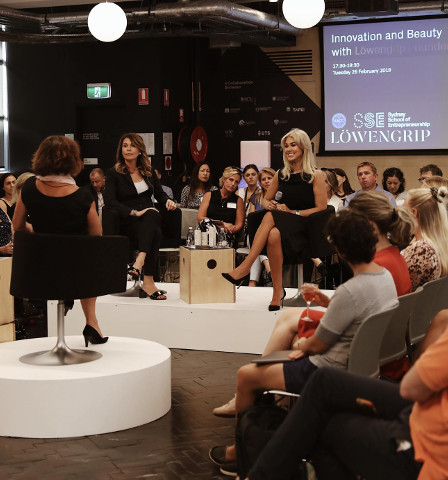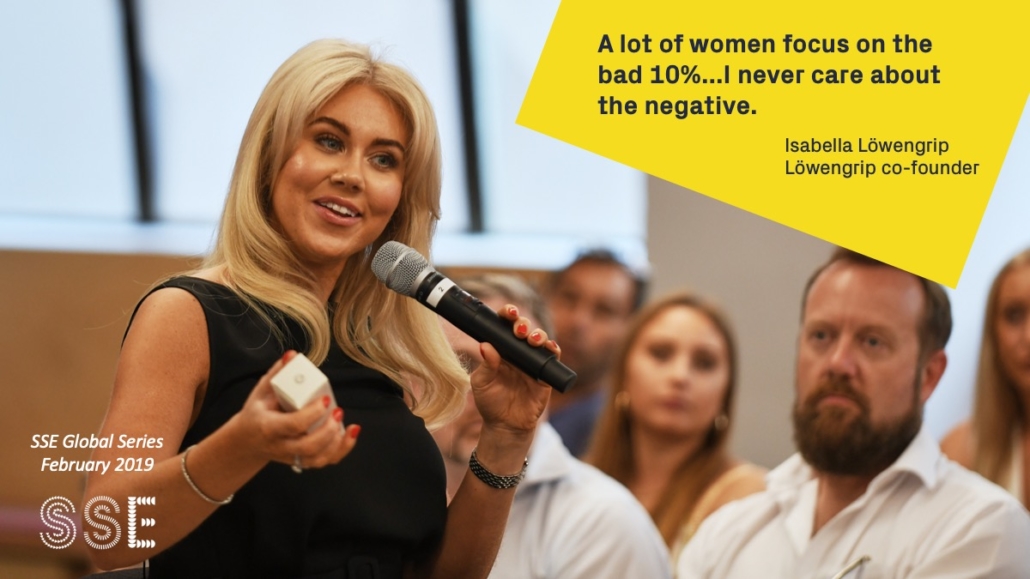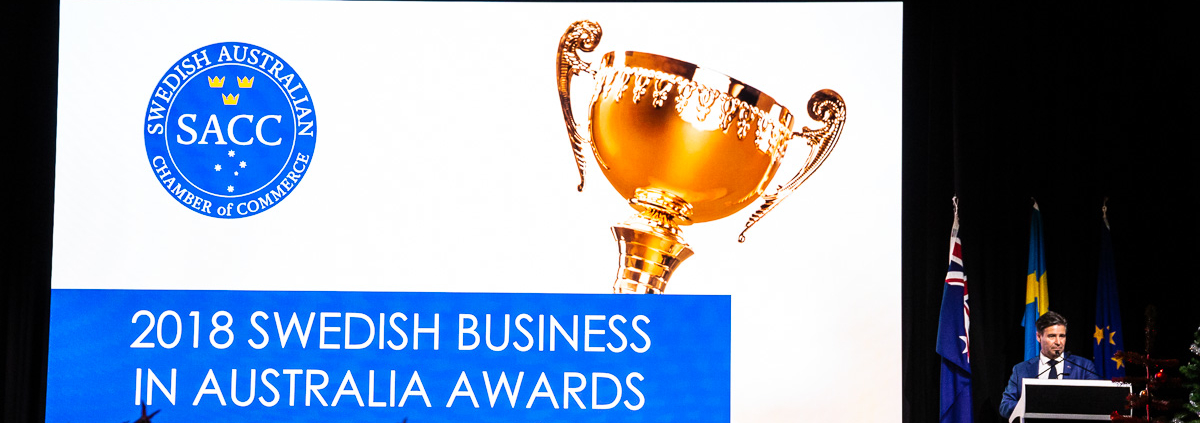Löwengrip in Sydney
by Anna Alvsdotter

Influencer beauty entrepreneur found her perfect partner.
Now they’re about to make Australia glow.
If you haven’t heard of Blondinbella, you’ve probably lived under a rock for the past decade and a half.
Your other excuse would be residing in Australia, as her beauty brand is only just being introduced to our market through the Myer stores. The leading influencer in the Nordics with an audience of 1.5 million weekly followers, Isabella Löwengrip and her online alter ego Blondinbella have featured regularly in Swedish media.
Together with her perfect side-kick Pingis Hadenius, she runs businesses with a combined turnover of $10 million, and more than 50 employees. The pair has started several companies and co-written two books on economics.
An evening in early March, I have the pleasure of acting as moderator and interviewer during a sold-out event at the Sydney School of Entrepreneurship.
“It’s important to be a role model”, says Isabella. “I started my first blog when I was 14 when I moved out of home by myself. My followers have been with me for the entire journey. They’ve seen me going from nothing, being bullied at school, having acne, and I started my own company together with Pingis.
Today, it’s the fastest growing Swedish beauty company. I think being transparent, that they can see the entire journey, and being very honest about all sides in life. To show that anything is possible, and I think people love to follow other positive people”, Isabella explains.
“What you see with Isabella is that she dares to open up her life – it’s not the perfect, polished just beautiful images”, says Pingis. “It’s that as well, but it’s all the content behind, and you really get to follow a real person that you can relate to.” In business circles, they are relatively young. Isabella Löwengrip is only 28 and started a beauty blog when she was in her mid-teens. Being a leading influencer, her advice on how to handle negativity, ridicules and detractors is useful.
“If I get a hundred comments, and maybe ten of them would say that I’m too fat, or something about my skin… They can find anything [negative to say], and I think a lot of women maybe focus on the bad ten instead of thinking about the 90 positives”, she says.
“I don’t care about what people are saying. And maybe that’s my biggest strength in life. I NEVER care. I just want to be happy and run our business together, and travel and make people glow”. The bit about making people glow is a light-hearted way to slip in a little promotion of their latest product.
The tight connection between these two powerhouses is noticeable. Discussing the importance of open communication and honesty, Pingis Hadenius says they’ve never had an argument in all the years working together. “Of course we discuss things, but there’s never an emotional side to it. It’s never private, it’s always professional, what’s best for the business. Say I walked into [this event] here, and Isabella said, ‘What are you wearing, this is not the right outfit’. I’d just think ‘Ok that’s probably not good for the business’, and I’d just change my outfit. We can be so open and honest with each other”.

The two Löwengrip Beauty AB founders sparkle with enthusiasm, keen to share their story of entrepreneurial success and valuable start-up advice. The audience is even treated to the true story about their business partnership. “We
“You get something out of every relationship” adds Hadenius. “I noticed straight away how direct you are, and I love that myself. I remember sending you an email saying – Let’s write a book together, and you were like, OK!”
Writing their book on financial literacy, Economista, they set the tone for their future working arrangement.
Hadenius manages the business and sales, while Löwengrip’s role is mainly to be in charge of product development and the whole brand building. “You have to do what you love because every day is a struggle. You have to do what you’re passionate about.”







